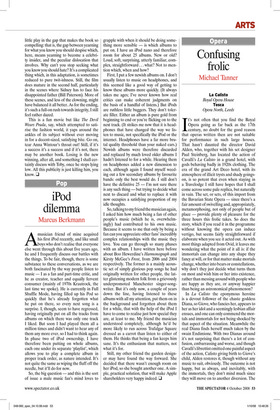Losing is the new winning
Deborah Ross
How to Lose Friends and Alienate People
15, Nationwide How to Lose Friends and Alienate People is based on Toby Young’s best-selling memoir of the same name and, already, I know what you are thinking. You are thinking: what, a film based on Toby’s book? Well, he kept that very quiet, the sly old devil. Who’d have thought it? I even suspect that although, in the end, Toby did attend the recent glitzy, red carpet première in London — you saw him lined up with all the other celebrities in the following day’s papers, surely — he probably wasn’t that keen, probably protested with something along the lines of: ‘It’s just not my thing. Can’t I stay in and watch telly instead? You go. Who’s interested in me anyway?’ But here it is, whether he likes it or not, with its A-list cast including Simon Pegg, Kirsten Dunst, Gillian Anderson and Jeff Bridges, not that any of this would impress Toby — ‘Please, stop! This is all so embarrassing!’ — and as directed by Robert Weide, who also directed many of the episodes of Curb your Enthusiasm, possibly the greatest sitcom of all time (bar My Family, of course, and On the Buses). Still, I’m not sure that the film ever properly captures the book, which doesn’t mean it’s not an enjoyable film, or that films should always be religiously faithful to books — they must always seek to cut it in their own right — but just that if it had captured the book, it would be a much smarter, sharper film. I have no idea if Toby agrees with this or not, have yet to ask him, but I will certainly do so once all the fuss has all died down and he’s stopped lying low.
Have you read the book? If not, you should. I read it first on a long train journey, didn’t put it down, and laughed out loud a lot, although there is never any point telling Toby any of this (‘Please, stop. Why are you always embarrassing me like this?’). The book, published in 2001, charts Toby’s move from London to New York to become a contributing editor at Vanity Fair, where he screwed up big time — inadvertently ordering a stripogram to come into the office on Take your Daughter to Work Day, for example; getting coked-up with Damien Hirst at a photoshoot, for example — and was fired less than two years later.
Anyway, here we have Pegg not as Toby Young, but as ‘Sidney Young’ — obviously, being as shy as Toby is, wholly persisting with his own name would have been a step too far — who is grappling with The Modern Review over a kebab shop in London when the call comes in from Clayton Harding (Bridges), famous editor of New York-based Sharps magazine, offering him a job. So off he goes which, for the first hour, involves Pegg going for it in a rather Mr Bean-ish/Norman Wisdom-ish way as he trips, falls, spits food, sets off fire alarms and fails to save a Chihuahua from a falling vase. There is a lot of physical comedy, in other words. Although the book was a collection of anecdotes, a ’story arc’ has been imposed in the form of a romance between Sidney and his colleague Alison, played rather wanly by a wan Kirsten Dunst. (She, apparently, found Toby so irritating that, when the movie was being made, she banned him from the set. Honestly, if only more people knew about this they’d know what a bitch she is. Trouble is, Toby is too much the gentleman to speak up.) Although, amidst all the screwball stuff, there are some fabulously funny moments — Sidney interviewing a musical comedy star; the stripper; the of-the-moment film director who says of himself: ‘I am my own role model; I want to be me’ — there is very little play in the gap that makes the book so compelling: that is, the gap between yearning for what you know you should despise which, here, means yearning to become a celebrity insider, and the peculiar dislocation that involves. Why can’t you stop seeking what you know you should hate? It’s a complicated thing which, in this adaptation, is sometimes reduced to pure twit-ishness. Still, the film does mature in the second half, particularly in the scenes where Sidney has to face his disappointed father (Bill Paterson). More of these scenes, and less of the clowning, might have balanced it all better. As for the ending, it’s such a full-on rush towards integrity, I still feel rather dazed.
This is a fun movie but like The Devil Wears Prada, say, which attempted to satirise the fashion world, it yaps around the ankles of its subject without ever moving in for a decent-sized, satisfying bite. Go on, tear Anna Wintour’s throat out! Still, if it’s a success it’s a success and if it’s not, there may be another book. Losing is the new winning, after all, and something I shall certainly discuss with Toby, once he stops lying low. All this publicity is just killing him, you know. ❑











































































 Previous page
Previous page